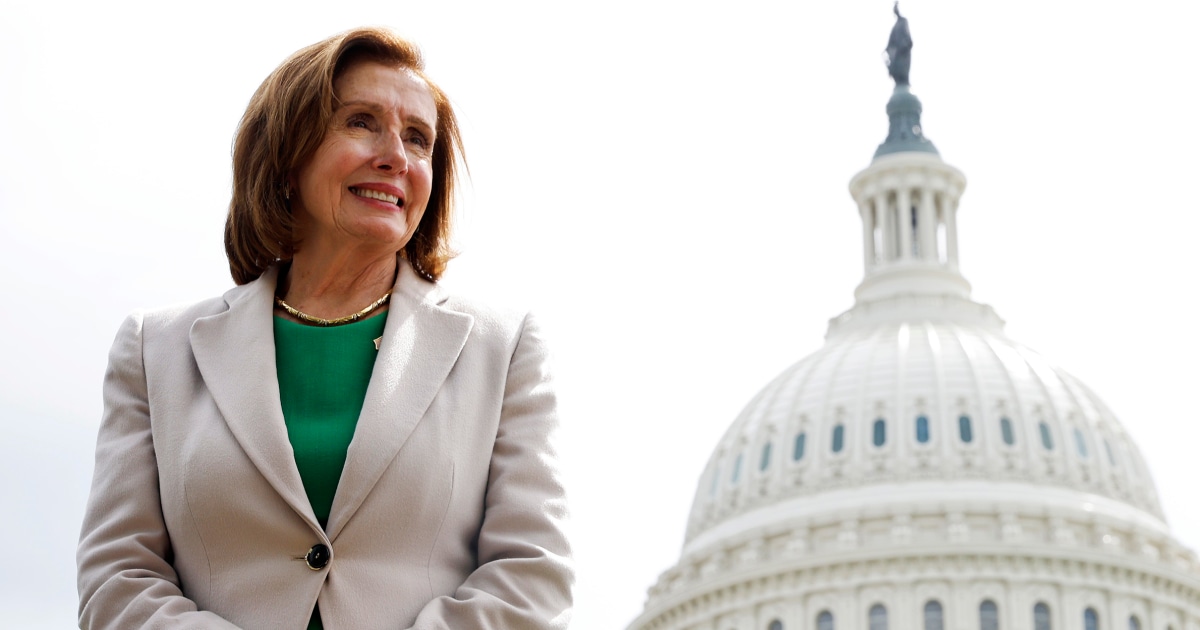Former House Speaker Nancy Pelosi’s announcement that she would not seek re-election capped off a decades-long tenure in Congress and the top echelons of the Democratic Party.
Now, her departure also sets up a clearer picture of the race to be San Francisco’s next representative in the House — and of how Democrats want to chart the future of their party at a moment of generational change.
The two main contenders for Pelosi’s district — Scott Wiener, a California state senator, and Saikat Chakrabarti, the former chief of staff to Rep. Alexandria Ocasio-Cortez — had already jumped into the race ahead of Pelosi’s decision.
Others could jump into the California race ahead of next June’s all-party primary, but already the two existing candidates’ views reflect different wings of the Democratic Party.
In interviews with NBC News, Wiener said that he has a record of building diverse coalitions and delivering on legislation, while Chakrabarti touted his push for “whole scale, structural change.” The perspectives reflect the wider party debate about whether to seek political change more through practical advances within existing systems or rather by overhauling those longstanding systems entirely.

It’s not the first time the race to succeed a former speaker also serves as a litmus test for the future of the party. After then-House Speaker John Boehner stepped down in 2015, the crowded GOP primary to fill his Ohio seat echoed the Republican Party’s broader debate over its future. Rep. Warren Davidson ultimately won the seat with the backing of the anti-establishment conservative Club for Growth, which had previously sparred with Boehner.
Neither Wiener nor Chakrabarti believed that Pelosi’s announcement changed much about the dynamics of the race. Wiener predicted that Chakrabarti, who had been focusing much of his attention on Pelosi, would pivot to attacking the state senator instead. Chakrabarti said that he believed the race wasn’t just about the former speaker, but the Democratic Party needing “wholesale change.”
“In my opinion, the real moment right now in the Democratic Party is, do we want to go back to the politics as usual?” Chakrabarti said in an interview, framing his opponent as “part of that normal establishment politics.”
Across the divide, Wiener presented himself as the candidate who could actually deliver.
“It’s not enough to just say that you want to accomplish X, Y and Z and to make videos about it, you need to give voters confidence that you know how to actually deliver on those promises around housing, health care, energy and so forth,” Wiener said, referencing Chakrabarti’s social media presence.

Wiener’s website touts the candidate’s record “authoring and passing more than 100 state laws,” pointing to his push to advance housing and pro-LGBTQ issues.
Chakrabarti disputed Wiener’s questions about whether he can deliver legislatively. He emphasized his role in crafting the Green New Deal, a progressive set of policy goals, and asserted that when people mobilized around climate, it forced Democratic presidential candidates to embrace environmental proposals in 2019 and 2020. Chakrabarti argued that the push contributed to former President Joe Biden’s Inflation Reduction Act, which included billions of dollars to fight climate change.
Pelosi has not yet weighed in on the race, and she told NBC News last week that making an endorsement was not her “current plan.”
Chakrabarti declined to share whether he was in talks about potential endorsements with the likes of Ocasio-Cortez or Sen. Bernie Sanders, I-Vt. Chakrabarti worked on Sanders’ 2016 presidential campaign.
Chakrabarti acknowledged that if he’s elected in 2026, while Republicans still control the White House, he would not be able to push forward on goals like enacting a universal health care system or developing a national bank to “fund, finance and develop affordable housing.” Instead, he said his initial goals would be “defending” constituents from Trump administration policies like immigration raids and troop deployment and working to “force the conversation” on anti-corruption issues.
If elected, Wiener emphasized wanting to elevate housing as a bigger issue at the federal level. Asked about similarities and differences with Pelosi, he noted that he is “very aligned” with her on issues like expanding health care access and said he was “a huge admirer of her work.”
“I’m my own person, and we have lots of shared values and priorities, and I have priorities that are my own,” he said.

